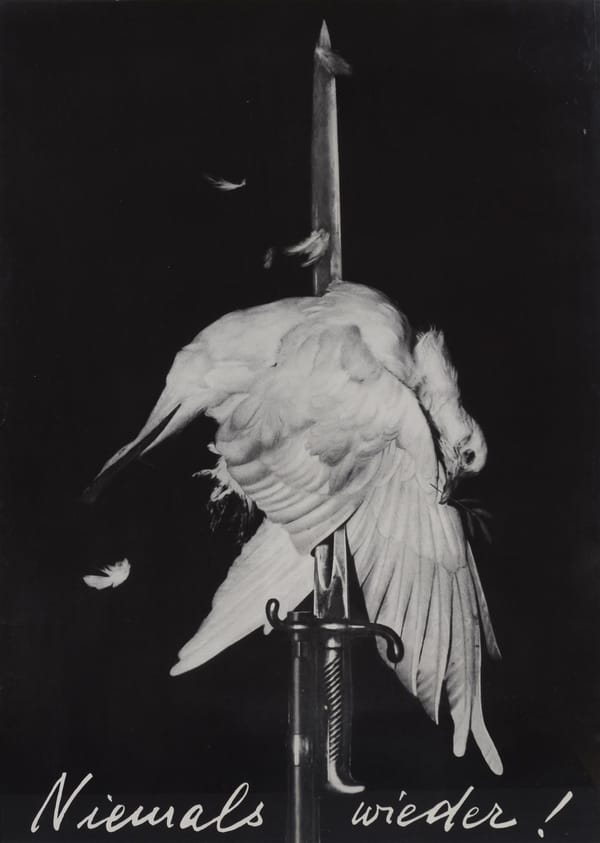Dialectical Thinking
Both/And vs. Either/Or

On my right wrist I have tattooed “Deus Absconditus” which is Latin for “God Hidden.” On my left, I have “Deus Revelatus,” “God revealed.” In all my writing, I try to hold these things in tension. The hiddenness of God in tension with the revelation of God. In this way, I am a dialectical thinker.
Jack’s Substack is a reader-supported publication. To receive new posts and support my work, consider becoming a free or paid subscriber.
Dialectical thinkers maintain that pursuing truth requires dialogue between different viewpoints. The dialectical method follows from thesis to antithesis to synthesis. The synthesis is the result of holding the thesis and antithesis in tension. As I discussed in my post on Kierkegaard, for him the human is held together as a synthesis of the finite and the infinite. If we err on one side or the other, either losing ourselves in our infinite imagination or dehumanizing ourselves as mere finite matter, we despair. This is an example of dialectical thinking.
As I reflected back on my recent writing, I noticed I was engaging in dialectical thinking from post to post. In one post, I criticized the Stoic philosopher Epictetus for saying that we must accept what we cannot change, instead of, as Angela Davis said, changing what we cannot accept. Then, in my post on Nietzsche I concluded, “Acceptance does not have to mean capitulation,” contradicting my earlier criticism of Stoicism with an embrace of Nietzsche’s Stoic principle of amor fati, loving your fate. Similarly, in my post entitled “A Time for Hate,” I suggested that feelings of hatred for those in power are justified and necessary. Then, in my post on Simone Weil, I concluded, “It is better to forgive than to hate.”
I’ve been thinking a lot lately about whether it’s possible to cultivate inner peace, in spite of the brokenness, corruption, and stressors of our world. The philosopher Theodor Adorno said, there’s no right way to live in a wrong world.1 It would seem there can be no inner peace, as we are always affected in one way or another by the demands and consequences of global capitalism. The revolutionary in me wants to emphasize our discontentment, because discontentment is the basis of protest. If the cost of inner peace is numbness toward injustice, I don’t want it. On the contrary, I would consider it my responsibility to be as unpeaceful as possible. I am reminded of a commitment in the Book of Common Prayer to “make no peace with oppression.” That was the spirit in which I wrote against Stoicism. That was also the spirit in which I wrote about the usefulness of hate.
But permanent discontentment is a recipe for burnout. No revolution can succeed on burnout. We need rest and strength. We need to build resilience, and that takes mental and spiritual fortitude. We can’t have that if we’re in a constant state of rage.
At the same time, we can’t have resistance if we’re in a constant state of tranquility either. It is here I return to the biblical writer Qohelet, who said “for everything there is a time … a time for war and a time for peace” (Ecc. 3:1, 8). Instead of dogmatically insisting on one principle, he maintained that truth goes through phases, that there are hours or seasons for different dispositions. For Qohelet, wisdom requires holding multiple notions in tension. This is what I’ve been trying to do in my reflections on acceptance and resistance.
This is also why I appreciate liturgical seasons. Lent and advent are seasons when Christians reflect on the absence of God, on deprivation, and on death. Christmastide and Eastertide are seasons when Christians reflect on new life and restoration. There is a liturgy for every occasion, reflecting the diversity and depth of human experience. The ability to move from one occasion to another requires dialectical thinking.
Dialectical thinking is distinguished from binary thinking, which sets up and seeks to enforce rigid oppositions: either male or female, either good or bad, either political or apolitical, either human or divine, either natural or supernatural. Dialectical thinking reflects experience and seeks to follow its movements one from another. Binary thinking seeks to dictate experience and impose a single principle onto life. Men must be masculine, women must be feminine; God must be good, humans must be bad; politics must be secular, the church must be apolitical; earth must be natural, heaven must be supernatural. Binary thinking restricts life. It is narrow minded and refuses to consider ways of being that are alternative to its predetermined categories.
Dialectical thinking disrupts binary thinking, because where binary thinking sees either/or, dialectical thinking sees both/and. Dialectical thinking admits more than one thing can be true at once. When given an opposition, dialectical thinking can say yes and no to both sides for different reasons, allowing it to form a third thing, an inclusive, open-ended composite. A human is not a single thing that is either male or female, masculine or feminine. Humans contain multitudes. A human can both have a penis and be feminine. A human can both have a vagina and be masculine.
Likewise, human experience is not a single thing that is either one way or another. We are not either joyful or sad, either hopeful or hopeless, either active or passive. We can be one and then another, like movements in a symphony.
Dialectical thinking is true to the dynamics of life. It encourages us to be flexible, open-minded, and complex, rather than simplistic and overbearing.
What do you think? What is an example of either/or thinking? What is an example of both/and thinking?
Jack’s Substack is a reader-supported publication. To receive new posts and support my work, consider becoming a free or paid subscriber.
“Wrong life cannot be lived rightly.” Theodor Adorno, Minima Moralia: Reflections From Damaged Life, trans. E. F. N. Jephcott (New York: Verso, 2005), 39. ↩



